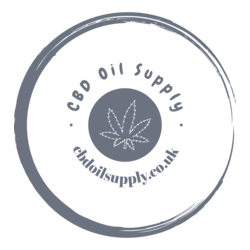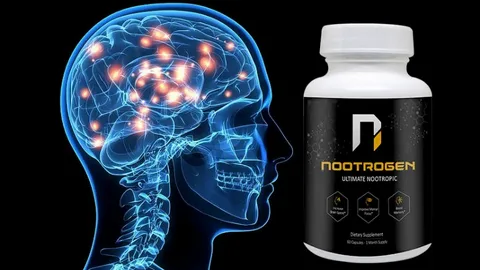Entrepreneurs often face the challenge of balancing multiple responsibilities while striving to maintain peak mental performance. Nootropics, also known as smart drugs or cognitive enhancers, have gained popularity as a means to boost cognitive function, focus, and overall productivity. This guide explores the best nootropics for entrepreneurs, delving into their benefits, potential side effects, and the science behind their effectiveness.
What Are Nootropics?
Nootropics are substances that enhance cognitive functions such as memory, creativity, focus, and motivation. Unlike stimulants, which primarily boost energy levels, nootropics aim to improve brain function without causing adverse side effects. They can be natural or synthetic and are often used to support mental performance in high-pressure situations.
Why Entrepreneurs Use Nootropics
Entrepreneurs are constantly juggling tasks, managing stress, and making critical decisions. Nootropics can provide several benefits:
- Enhanced Focus: Helps maintain concentration on important tasks.
- Increased Productivity: Supports better time management and efficiency.
- Improved Memory: Aids in retaining and recalling information more effectively.
- Stress Reduction: Helps manage stress and anxiety levels.
- Boosted Creativity: Encourages innovative thinking and problem-solving.
Popular Nootropics for Entrepreneurs
1. Caffeine
Caffeine is one of the most widely used nootropics and is found in coffee, tea, and various supplements. It works by blocking adenosine receptors in the brain, which helps increase alertness and reduce fatigue.
- Benefits: Enhanced focus, increased alertness, improved mood.
- Considerations: Can cause jitteriness or insomnia if consumed in excess.
2. L-Theanine
Often used in combination with caffeine, L-Theanine is an amino acid found in tea leaves. It promotes relaxation without sedation, making it an excellent complement to the stimulating effects of caffeine.
- Benefits: Reduces anxiety, improves attention, enhances cognitive performance.
- Considerations: Generally well-tolerated, with minimal side effects.
3. Rhodiola Rosea
Rhodiola Rosea is an adaptogenic herb known for its ability to reduce stress and fatigue. It can help improve mental performance under stressful conditions.
- Benefits: Reduces stress, enhances endurance, improves cognitive function.
- Considerations: May cause dizziness or dry mouth in some individuals.
4. Bacopa Monnieri
Bacopa Monnieri is a traditional Ayurvedic herb used to improve memory and cognitive function. It is believed to work by enhancing the synthesis of neurotransmitters.
- Benefits: Improves memory retention, supports cognitive function, reduces anxiety.
- Considerations: Can cause digestive upset in some individuals.
5. Modafinil
Modafinil is a prescription drug used to treat narcolepsy and other sleep disorders. It is also used off-label as a cognitive enhancer for its ability to promote wakefulness and alertness.
- Benefits: Increases alertness, enhances focus, improves executive function.
- Considerations: Should be used under medical supervision, potential for side effects.
6. Noopept
Noopept is a synthetic nootropic that is often used for its cognitive-enhancing properties. It is believed to work by increasing levels of brain-derived neurotrophic factor (BDNF).
- Benefits: Enhances memory, improves cognitive function, boosts mental clarity.
- Considerations: Limited research on long-term effects.
7. Piracetam
Piracetam is one of the earliest nootropics and is known for its potential to enhance memory and cognitive function. It is believed to work by increasing blood flow to the brain.
- Benefits: Improves memory, enhances learning, supports cognitive function.
- Considerations: Generally well-tolerated but may cause headaches in some individuals.
8. Lion’s Mane Mushroom
Lion’s Mane is a medicinal mushroom known for its potential to support cognitive health and neurogenesis. It is often used to enhance mental clarity and memory.
- Benefits: Supports cognitive health, promotes nerve growth, reduces symptoms of anxiety and depression.
- Considerations: Generally safe, but effects may vary between individuals.
9. Ashwagandha
Ashwagandha is an adaptogenic herb used in traditional medicine to reduce stress and improve mental resilience. It is known for its potential to support cognitive function and overall well-being.
- Benefits: Reduces stress, improves cognitive function, enhances mood.
- Considerations: Can cause digestive issues or drowsiness in some people.
10. Ginkgo Biloba
Ginkgo Biloba is a well-known herbal supplement used to support cognitive function and improve blood flow to the brain. It is often used for its potential to enhance memory and mental clarity.
- Benefits: Enhances memory, improves cognitive function, supports brain health.
- Considerations: May interact with blood-thinning medications.
How to Choose the Right Nootropic
When selecting a nootropic, consider the following factors:
- Purpose: Determine what cognitive function you want to enhance (e.g., focus, memory, stress reduction).
- Safety: Research potential side effects and interactions with other medications.
- Dosage: Follow recommended dosages and consult with a healthcare provider if needed.
- Individual Response: Monitor how your body responds and adjust accordingly.
Combining Nootropics
Some entrepreneurs choose to combine multiple nootropics to enhance their effects. This practice, known as “stacking,” can be effective but requires careful consideration of potential interactions and side effects. Common combinations include:
- Caffeine and L-Theanine: Enhances focus and reduces anxiety.
- Modafinil and Bacopa Monnieri: Increases alertness while supporting cognitive function.
- Noopept and Rhodiola Rosea: Improves cognitive function and reduces stress.
The Science Behind Nootropics
Nootropics operate through various mechanisms, including:
- Neurotransmitter Modulation: Some nootropics increase the availability or activity of neurotransmitters like dopamine and serotonin, which can enhance mood and cognitive function.
- Neurogenesis: Certain nootropics, such as Lion’s Mane, may promote the growth of new neurons and support brain health.
- Blood Flow: Nootropics like Ginkgo Biloba can improve blood circulation to the brain, enhancing cognitive function and memory.
Potential Risks and Side Effects
While nootropics can offer cognitive benefits, they may also pose risks, especially when used improperly. Potential side effects include:
- Insomnia or Jitteriness: Often associated with stimulants like caffeine.
- Digestive Issues: Some nootropics can cause gastrointestinal discomfort.
- Interactions with Medications: Nootropics may interact with prescription medications or other supplements.
It’s essential to start with a lower dose, monitor your body’s response, and consult with a healthcare provider if you have any concerns.
FAQs
What are the best nootropics for enhancing focus?
Caffeine and L-Theanine are popular choices for improving focus. Caffeine provides a stimulating effect, while L-Theanine promotes relaxation, reducing anxiety and improving attention.
Can nootropics help with stress management?
Yes, Rhodiola Rosea and Ashwagandha are adaptogenic herbs known for their ability to reduce stress and enhance mental resilience.
Are there natural nootropics that improve memory?
Bacopa Monnieri and Lion’s Mane Mushroom are natural nootropics that can support memory retention and cognitive function.
How do nootropics compare to stimulants?
Nootropics are generally aimed at enhancing cognitive function without the intense stimulating effects of drugs like caffeine or amphetamines. They often have fewer side effects compared to traditional stimulants.
What are the potential side effects of using nootropics?
Side effects can vary depending on the nootropic. Common issues include insomnia, digestive discomfort, and possible interactions with other medications.
Is it safe to stack nootropics?
Stacking nootropics can be effective but should be done cautiously. It’s important to research potential interactions and consult with a healthcare provider to ensure safety.
How long does it take to see the effects of nootropics?
The onset of effects can vary. Some nootropics, like caffeine, provide immediate results, while others, like Bacopa Monnieri, may take several weeks of consistent use to show benefits.
Can nootropics replace a healthy lifestyle?
Nootropics should be used as a supplement to a healthy lifestyle, including a balanced diet, regular exercise, and adequate sleep, rather than as a replacement.
Are there any nootropics that enhance creativity?
Noopept and Modafinil are known for their potential to enhance cognitive function, which can indirectly support creative thinking and problem-solving.
How should I start using nootropics?
Start with one nootropic at a low dose to assess your response. Gradually increase the dose if needed and consider combining it with other nootropics based on your specific goals.
Conclusion
Nootropics can be valuable tools for entrepreneurs looking to enhance cognitive function, focus, and productivity. By understanding the benefits and potential risks of various nootropics, you can make informed choices to support your mental performance. As with any supplement, it’s essential to approach nootropic use with caution and consult with a healthcare provider to ensure safety and effectiveness.
- Why Vista Edge Vape Is Trending: The Features That Make It Stand Out - May 31, 2025
- Skin Pen Microneedling Near Cheam, Surrey - May 30, 2025
- Jaw Fillers For A Defined Jawline Near Wotton, Surrey - May 30, 2025


